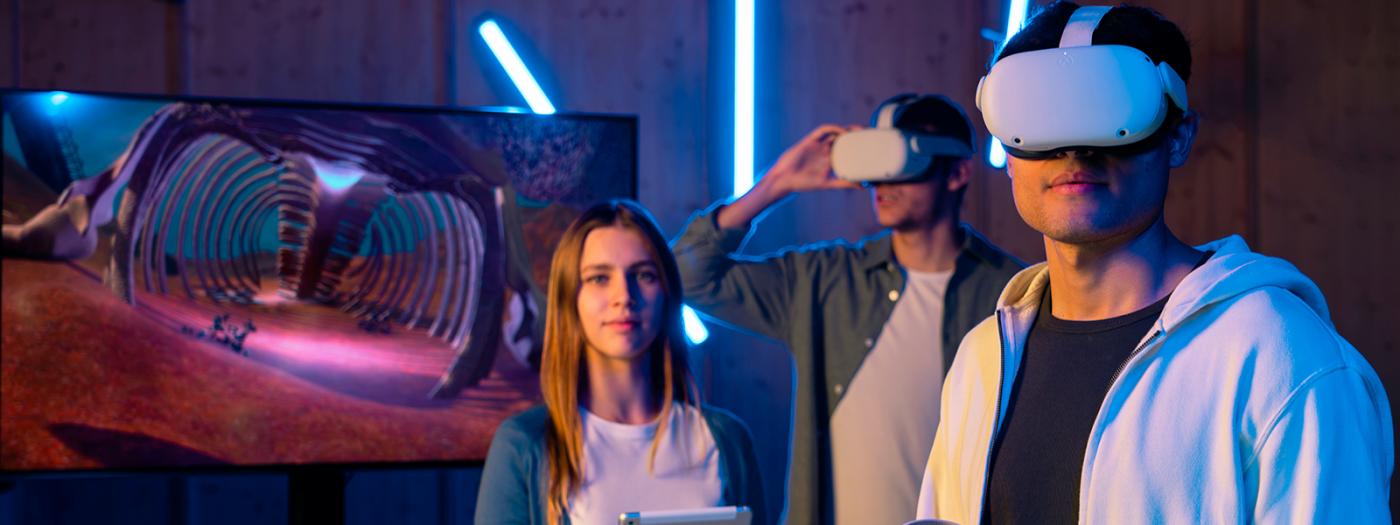The subject of Business and Technology responds to the market demand for graduates with a mulitdisciplinary background trained to work in a global world. Nowadays, a set of qualities commonly known as soft skills is a key part of the study program of any technical degree. On this course, you will develop interpersonal skills, such as teamwork and conflict management, in a technological and intercultural environment. The program is taught exclusively in English in order to help students improve their communication skills and acquire a working knowledge of a third language and express themselves with ease in a professional setting in the technological sector.
Titular Professors
Students are expected to have between a B1 and B2 level of English
- Put into practice some of the basic business management concepts and techniques in a technological setting.
- Adapt working styles to the latest professional trends and globalised world.
- Develop mindsets and provide students with the tools they need to find solutions to the challenges of todays technological world.
- Improve the students spoken and written English.
- Provide students with the support they need to obtain the B2 (albeit over 2 years)
Session 1: Presentation of the subject
Explanation of the Oxford Place test
Reasons why students need English
Biographies and It/software company descriptions
Session 2: Oxford Placement test
Question-formation and present tense review (simple and continuous)
Descriptions: there is/are and nouns
Deliverable 1: Individual essay on the feasibility of the Google-working model in Spain
Session 3: Introduction to Globalisation
The World is Flat theory by Thomas Friedmann
Past tense review
Explanation of comparisons and superlatives
Deliverable 2: : Video and text comprehension of Yuval Harari interviewNationalism v. Globalism
Session 4: Digitalization and changing social, economic and political trends
Review of comparisons and superlatives
Technical vocabulary related to software industry
Deliverable 3: Individual essay on the advantages and disadvantages of technology in our lives
Session 5: Student presentations (Deliverable 4)
De-globalisation
Session 6: Smart Cities 1
The role of technology in the future of the city
Future tense explanation (will, going to, present continuous, might, simple)
Session 7: Smart Cities 2
How technology can help resolves the challenges of todays society (com a Covid-19)
Life under lockdown creating surveys and reports
Session 8: Grammar
The use of modal verbs to express prohibitions, recommendations, offer advice etc..
Session 9: The importance of soft skills in the working world
Introduction to Emotional Intelligence definition
Multiple intelligences applied to Engineering
TEDtalk Simon Sinek on Leadershipi
Session 10: Innovation
Types of innovation
Innovation teams The 10 faces of Innovation
Innovation within companies
Deliverable 5: Individual essay on teamwork
Session 11: Body language and presentation skills
The importance of body language when working on screen from home
Presentation tips
Session 12: Student presentations (Deliverable 6)
General review of the grammatical and lexical content of the course
Preparation for the final exam
The content is taught through the following teaching methodologies:
1. Lectures in which the teacher explains the content the students are expected to acquire. The teacher may use audiovisual support and/or learning platforms to foment content acquisition. The student is encouraged to actively participate in class, albeit to discuss class content, clear up any doubts or to answer questions from the teacher.
2. Exercises and problem-solving based on real casesin which the knowledge acquired in class is put to test. This work may be theoretical or purely linguistic and usually involves a demonstration of a comprehenisive understanding of the content taught in class. The teacher may ask the student to present her/his work in public. This work may be individual or group.
3. Seminars are workshops or talks in which the students can deepen their knowledge of the content studied in class (both practical and theoretical).
Marking system
Exams 30 %
Exercises, problems and practical work 30 %
Oral Presentations 30 %
Participation in class 10 %
Grading of competences
Knowledge of a second/third language English 40 %
Application of business management concepts and theory 60%
1. Improve the knowledge of the English language. [A, C, E, J]
2.Provide students with a range of technical vocabulary from software technology [A, D]
3. The correct use of linguistic structures for their needs in the professional world (correspondence, presentations, meetings ...) [A, D, E, Y]
4. Effective communication, both written and oral. [Y, J]
5. Provide the students with the theoretical knowledge of the contents [A, D, E, Y]
Class content and language course are available on the subject's e-study platform.
The World is Flat: Further Updated and Expanded (Release 3.0) (2nd revised and expanded ed.). Farrar, Straus and Giroux. 2007. ISBN 0-374-29278-7.
The Paradox of Choice - Why More Is Less, Barry Schwartz, 2004, ISBN 0-06-000568-8.
Intercultural Communication: A Reader, Larry A. Samovar San Diego State University, Emeritus Richard E. Porter California State University, Long Beach, Emeritus Edwin R. Mcdaniel San Diego State University, 2010, ISBN-13: 978-0-495-89831-3.
Out of Our Minds: Learning to be Creative, Ken Robinson, 2011, ISBN 0857086545
A Whole New Mind: Why Right-Brainers Will Rule the Future, Daniel H. Pink, ISBN 978-1-57322-308-9
The Innovator's Dilemma: When New Technologies Cause Great Firms to Fail, (Management of Innovation and Change), Clayton M. Christensen, 2016
The Innovator's Solution: Creating and Sustaining Successful Growth, Clayton M. Christensen and Michael E. Raynor, 2013
The Ten Faces of Innovation: Strategies for Heightening Creativity, Tom Kelly, ISBN-10: 184668031X
